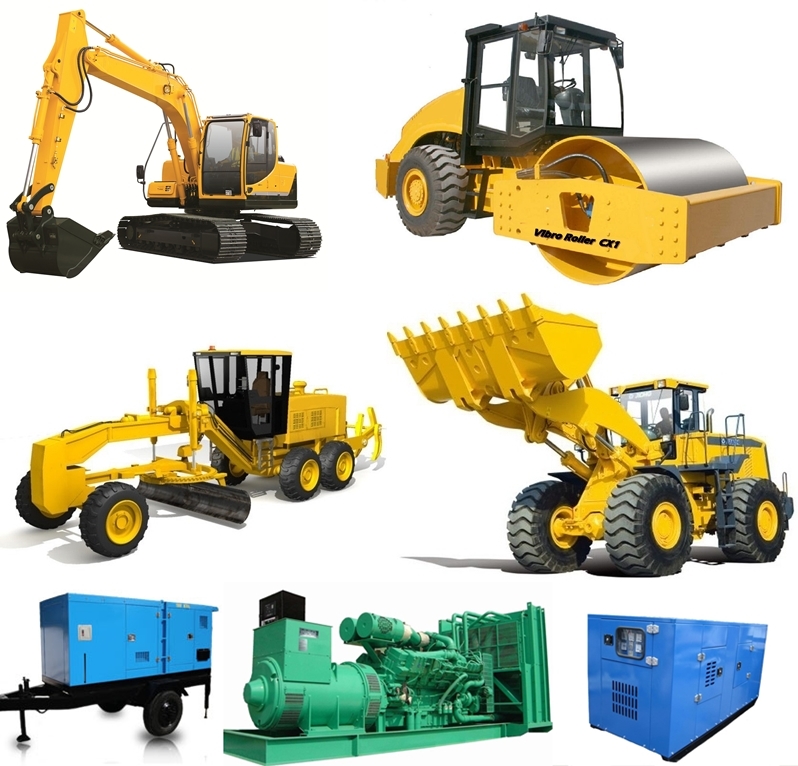Heavy Equipment Rental: Large Machinery for Any Kind Of Construction Project
Heavy Equipment Rental: Large Machinery for Any Kind Of Construction Project
Blog Article
Maximize Your Spending Plan by Understanding the Prices Connected With Building Tools Rentals
Recognizing the full scope of costs associated with construction equipment leasings is vital for maximizing your budget. What approaches can be used to properly handle these costs and guarantee a much more effective rental experience?
Summary of Rental Expenses
When considering building equipment leasings, understanding the connected prices is extremely important for reliable budgeting and task preparation. Rental prices can differ substantially based on numerous aspects, including devices type, duration of rental, and place. The initial rental cost frequently mirrors the devices's market need and its connected operational capabilities, affecting the general expenditure.
In addition to the base rental price, supplementary expenses might occur, such as transportation costs, gas surcharges, and maintenance costs. It is necessary to make up these extra expenses to precisely evaluate the overall price of leasing tools. The rental duration can affect rates; longer services may qualify for affordable prices, while short-term leasings could incur greater daily charges.

Breakdown of Rental Rates
An extensive understanding of rental prices is important for contractors and job managers intending to enhance their budgets. Rental rates for construction equipment generally consist of several components, consisting of base prices, time-based costs, and use charges.
Base rates are the core charges related to the rental of the tools, commonly determined by the kind and dimension of the machinery. These prices can vary substantially, influenced by aspects such as equipment demand, accessibility, and regional market patterns. Time-based costs, which may be daily, weekly, or monthly, serve to fit various job timelines and rental durations.
In addition, rental prices may consist of use fees, which are relevant when tools is utilized beyond a defined limit, guaranteeing that the rental business can make up deterioration. Seasonal need variations can additionally affect rental rates, with peak building seasons usually regulating greater prices.
Furthermore, comprehending the rental business's plans regarding upkeep and insurance can give additional understanding into the overall expense structure. By analyzing these components, contractors can make informed decisions, guaranteeing the selection of rental tools straightens with both task demands and budget plan restrictions.
Added Charges to Think About
Understanding the complexities of added costs is critical for contractors to manage their total rental costs efficiently. Past the common rental prices, different supplementary fees can dramatically impact the total cost of equipment rental. These charges commonly include distribution and pick-up charges, which can vary based on range and logistics associated with moving the equipment to and from the job site.
Furthermore, some rental companies might impose fuel surcharges if the equipment is returned with less fuel than when leased. It is also important to be conscious of prospective cleansing charges, specifically for specific tools that requires detailed maintenance after usage.

Extensively reviewing the rental arrangement and clarifying these added charges ahead of time can aid service providers make certain and avoid unexpected prices that spending plans remain undamaged throughout the job lifecycle.
Upkeep and Fixing Costs
Regular repair and maintenance expenditures are usually ignored factors that can significantly affect the general cost of building devices services. When renting equipment, it is crucial to think about not just the rental fees however additionally the prospective expenses linked with keeping the machinery in ideal operating condition.
Several rental business include basic upkeep as part of the rental agreement; nonetheless, more unanticipated malfunctions or extensive repairs can bring about extra expenditures. It's necessary to assess the rental contract carefully to comprehend what maintenance services are covered and what obligations drop on the tenant.
Furthermore, tools that is not well-kept can result in inefficiencies at work site, potentially boosting and triggering hold-ups task prices. To reduce these dangers, it is suggested to perform normal examinations and keep open communication with the rental copyright concerning any type of issues that develop throughout usage.
Insurance Coverage and Responsibility Expenses
Insurance and liability expenses are essential parts that can significantly affect the total expense of building equipment leasings (boom lift rental). These costs guarantee that both the rental company and the client are shielded from possible economic losses occurring from accidents, damage, or burglary throughout the rental duration

In addition, customers need to know any type of deductibles or exemptions in the insurance plan, as these can affect prospective out-of-pocket expenses. Recognizing the terms and problems of any insurance coverage is crucial to avoid unforeseen expenses. Ultimately, budgeting for insurance and liability expenses can assist ensure a smoother rental experience and protect versus financial threats associated with building jobs.
Conclusion
To conclude, an extensive understanding of the expenses connected with building and construction devices leasings is vital for efficient budget plan management. By assessing rental rates, additional fees, maintenance costs, and insurance people, organizations and needs can lessen unexpected expenses. This calculated method not just boosts cost-effectiveness but also makes certain that projects advance efficiently and efficiently. Inevitably, notified decision-making concerning tools leasings adds to the total success of building and construction endeavors.
Rental costs can vary dramatically based on a number of elements, consisting of devices type, duration of service, and area (dozer rental). The rental duration can influence rates; longer services might certify for affordable rates, while short-term rentals official statement may sustain greater everyday costs
By carrying out complete study and involving with trustworthy rental business, contractors can efficiently browse the complexities of rental pricing, ultimately optimizing their economic resources.
Beyond the standard rental rates, numerous additional costs can dramatically affect the complete expense of equipment leasing. Rental firms frequently offer responsibility insurance coverage that covers injuries to third celebrations or damages to residential or commercial property, while equipment damage insurance can cover the expense of repair services or substitute if the rented out equipment is harmed.
Report this page